Spiritual habits can be an incredibly powerful influence on our lives. Read on to find out why.
Last week, I walked into a McDonalds with my husband. I ordered a salad, and he ordered a big juicy burger and poutine. The next day he was bemoaning his horrible food choice because he felt so crummy afterward.
But I don’t think what he ordered was truly a choice.
THE POWER OF HABIT
Way back in 1892, William James, an American psychologist said “all our life, so far as it has definite form, is but a mass of habits”. More recently, scientific studies have shown that 40% of all our behavior is actually automatic habits, not actual decisions.
A habit is something that started as a conscious decision, but eventually, our brains just turned it into what’s a “habit loop” – we stop making a choice and we just do it. My husband spent so many of his young adult years walking in a McDonalds and ordering a burger and fries that it’s now an automatic habit. He doesn’t even think about it.
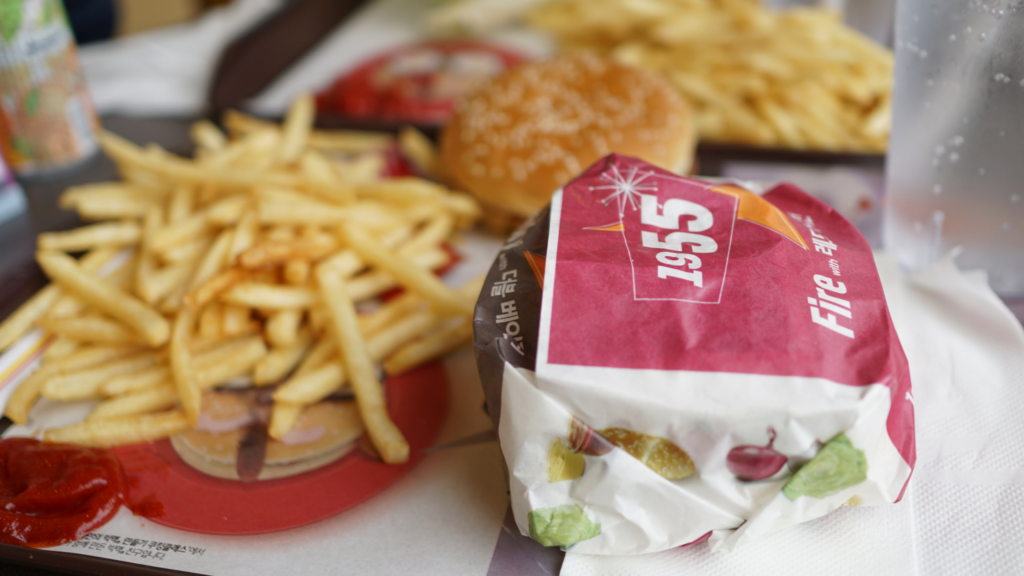
Does it make you drool?
Ordering from McDonald’s isn’t the only habit humans have though. What we do when we get up in the mornings, how we respond to a child’s temper tantrum, whether we exercise or spend time in prayer during the day…all these things have become automatic habits, not conscious decisions.
The good news is that by focusing on a keystone habit in our lives, we can reprogram other routines.
Our habits are changeable.
THE SCIENCE BEHIND HABITS
Let me explain just a tidbit of the science behind this, which I learned from Charles Duhigg’s book, “The Power of Habit: Why we do what we do in life and in business”. (Amazon link)
The basal ganglia is a part of our brain that scientists didn’t understand for a long time. It doesn’t control automatic functions like breathing or blood flow, it doesn’t store memory like the hippocampus, and it doesn’t affect our personality like the frontal lobe.
The basal ganglia’s job is tostore patterns of behavior.
When certain cues come up, the basal ganglia leaps into action and starts the habit machine. It ticks through it, allowing your brain to think about other things while the basal ganglia helps your body execute the habit. Habits can be really helpful – having a place in our brain where we store automatic patterns saves brain space for thinking deeper.
THE THREE PARTS OF A HABIT
So we have a place in our brains where we store habits. But what sets it off? How does our brain know that it’s time to launch a habit?
It needs a cue. A CUE can be anything. It can be walking into McDonald’s. It can be hearing your alarm clock or overhearing your kids fighting. It can be smelling coffee or tasting a bit of sugar, or a vague feeling of anxiety.
Habits are routines that have been encoded into our brains, and they always start with a cue. The problem is that our brains can’t tell the difference between good habits and bad habits.
For example, let’s say that while you were pregnant with your second child, you were tired and irritable, and every time your eldest asked for something, you would snap at him. The cue is your child asking for something. The routine is that you snap at him.
But habits have 3 parts. They have the cue, they have the routine, and they have a reward. In this case, the reward might be that you get a moment of peace.
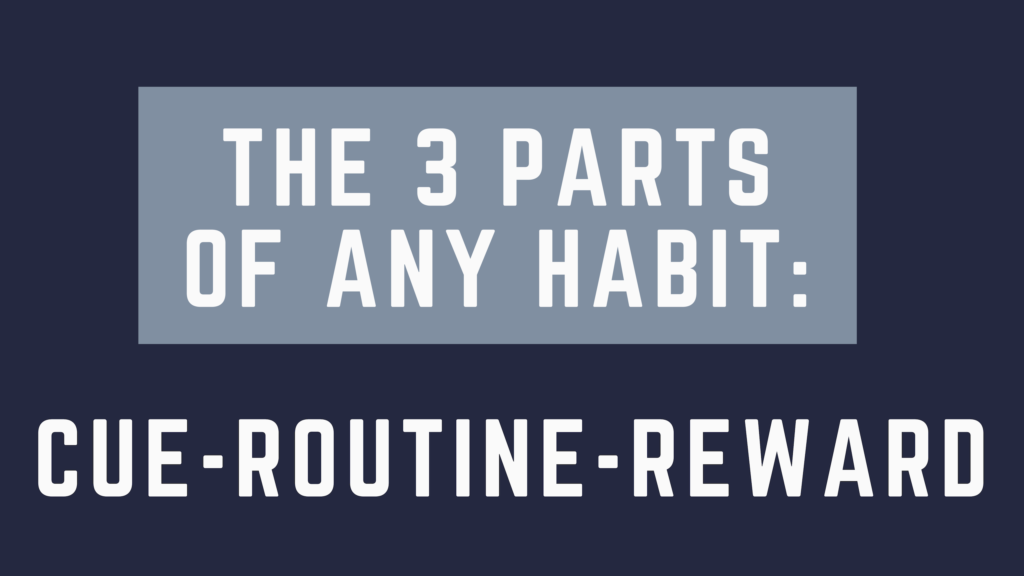
YOUR BRAIN DOESN’T DIFFERENTIATE BETWEEN GOOD AND BAD HABITS
Your brain turns this specific cue-routine-reward into a habit, even if you didn’t want it too, because habits aren’t polite. They can easily emerge without your permission because it’s just your brain’s way of saving space. If you’re a computer person, think of a bunch of files in your brain.
A habit is like a zip file – it packs up a group of behaviors (files) that often happen together, and zips them into a file that takes up less space in your basal ganglia. This is good because it frees up your conscious brain for other tasks.
The problem is that our brains continue those habits when we don’t want or need them anymore. That zip file is still there. It’s been locked up in the basal ganglia and will resurface anytime you receive the cue. So now, you have a habit of snapping at your child and you can’t figure out why. It’s because of a habit loop.
WE CAN AFFECT OUR HABITS
But habits are both powerful and fragile. Without the cue, they don’t surface. For example, when I taste just a bit of sugar, it starts a habit loop in my brain that makes me go hunting for more sugar. A little sugar is my brain’s cue to get more sugar. So I find that if I don’t have any sugar, I don’t crave it. The habit loop doesn’t get its cue so it doesn’t start.
But we can’t always avoid the cues.
I can’t always avoid sugar.
But we can also change the middle part of the habit loop: the routine. We can train our brains to receive the same cue [sugar] and get the same reward [a sweet taste in my mouth], but with a different routine in the middle. For example, I could train myself to grab an apple instead of a sugary granola bar.
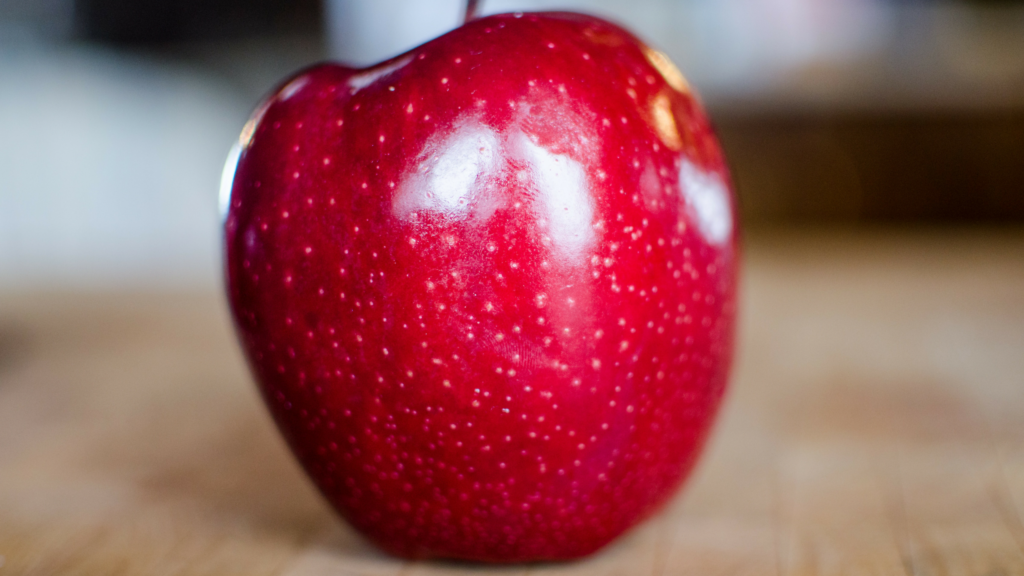
That routine in the middle of habit loop can be changed. This is called “habit reversal therapy”.
We can also create brand new habits in our lives.
To recap, habits are powerful patterns created by our brains. They usually happen subconsciously, but we can create new habits intentionally. And I’m going to teach you how to do this, in the context of developing small habits of family faith.
WHAT DOES THIS HAVE TO DO WITH RAISING CHRISTIAN KIDS?
One key toward creating habits that isn’t mentioned in the book is that, as Christian parents, we know that we have a powerful God that wants to connect with our kids. Our job as parents is to cultivate habits and cultures that make it easier for our child to sense God’s work in their lives.
The Bible is clear that we’re saved by faith. But then why does James 2:17 say that “faith without works is dead”?
In this article, John Piper explains that salvation is much more than a one-time, one-and-done, saved-from-hellfire event.
“The biblical term salvation is used to cover past, present, and future dimensions of God’s work to bring us into everlasting perfection and joy. Ephesians 2:8 says, “You have been saved.” 1 Corinthians 1:18 says we “are being saved.” Romans 13:11 says, “Salvation is nearer to us now than when we first believed.” Past, present process, future completion.”
We are saved by faith, but we work out our salvation as we grow closer to God, behaving and thinking and becoming more like Jesus.
In theological terms, the first is called justification and the second is called sanctification.
However, we don’t do it on our own strength.
Philippians 2:12-13 remind us of this:
“Therefore, my dear friends, as you have always obeyed—not only in my presence, but now much more in my absence—continue to work out your salvation with fear and trembling, for it is God who works in you to will and to act in order to fulfill his good purpose.”
It’s a partnership with God in front and behind, but us as willing participants.
Many years ago I taught piano. Many students came to their weekly lesson, then went home and practiced daily. Those kids improved over time. Then there were a few students that came to their weekly lesson, but they didn’t do anything during the week. Lessons became frustrating for both of us because they didn’t improve, and we ended up doing the same songs over and again.
They were still invited to lessons and recitals, but they didn’t actually get much better.
Likewise, when we go to church (or take our kids to church) once per week but don’t work out our salvation in our everyday lives, nothing much changes.
The Christian life lacks power when we lack Christ in our daily life.
We need to develop habits of faith in our lives, and in the lives of our children and families.
I’m not the only one who understands the power of habits in the Christian life! Check out this quote from Rick Warren (author of The Purpose Driven Life):
“The only way you get people to take responsibility for their spiritual maturity is to teach them habits of faith. Once that happens, they become self-feeders. People follow Christ not because you’ve led them there, but because it’s who they are.” (quotedin The Power of Habit by Charles Duhigg)
As parents, Sunday School teachers, and Grandparents, we need to give our kids habits of faith, so that when they grow up, they aren’t just Christians because we told them to be Christians, but because it’s who they are and they can’t imagine living a life without God at the centre.
START YOUR OWN SPIRITUAL HABITS
Today, I want you to spend some time in prayer. Depending on your level of comfort with prayer, this might look different for each person.
You could simply say this: “God, please show me one thing you want to do in our family. Show me which spiritual habit to start.”
Download the free workbook here!
Then pay attention to where your thoughts go over the next little while. Do you feel a prompting to spend more time personally connecting with God? This is a great place to start because we can’t point our children to a God we don’t know.
Or perhaps you have a sudden desire to start praying with your kids regularly, read the Bible with your kids, practice hospitality, or teach your kids financial stewardship.
Here is a post with some example habits that will help your child grow spiritually.
Those are all habits that help us draw closer to God and show his love to others.
In the next post, I’m going to share HOW we can actually create this new habit intentionally, using the brain science that we learned in this article!


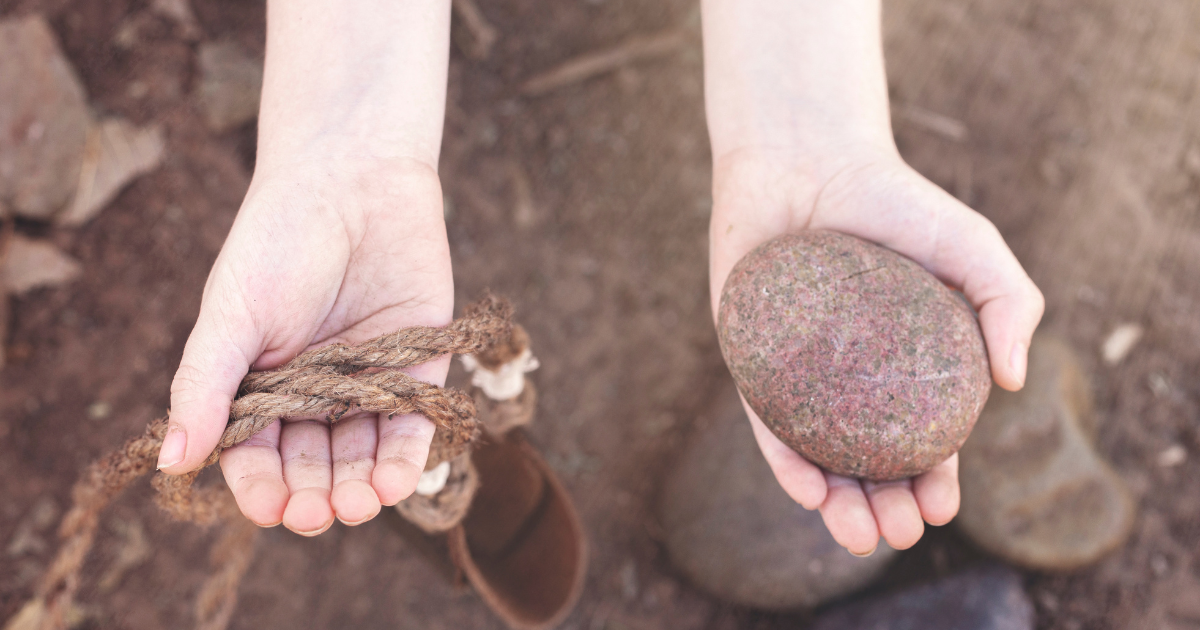

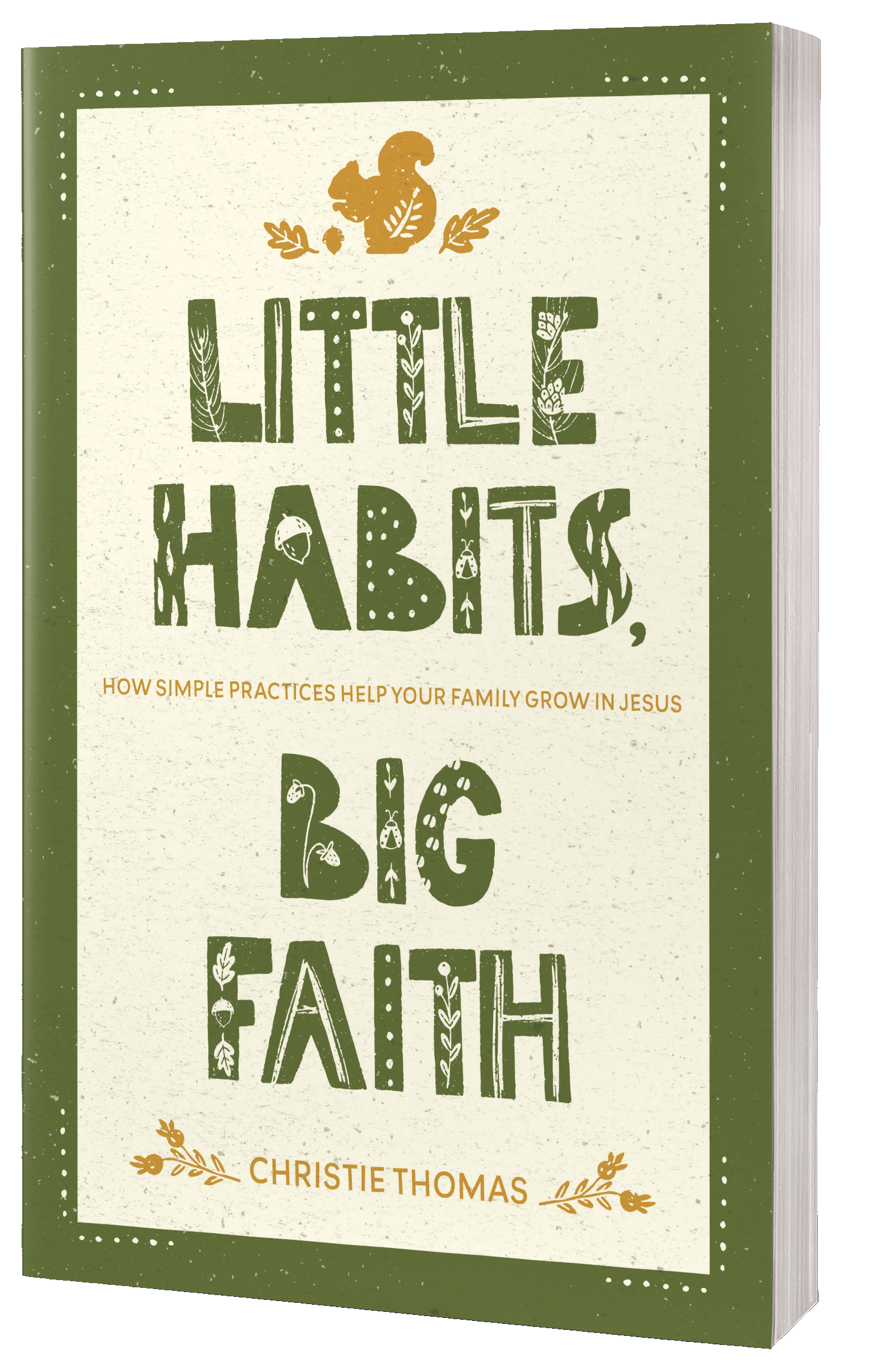
0 Comments
Trackbacks/Pingbacks